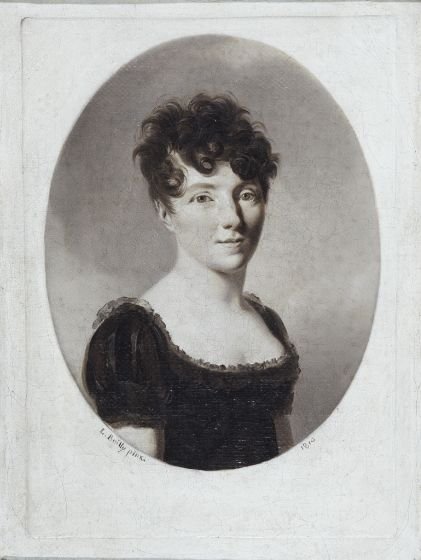BIOGRAPHY MUSIC SOURCES
Raised in a wealthy home, writer, librettist, and composer, Baroness Sophie de Bawr (born Alexandrine-Sophie Goury de Champgrand), was the daughter of the Marquis Charles-Jean de Champgrand and Madeleine-Virgine Vian, an opera singer. Her mother left for Russia when she was 2 while her father raised her and ensured she received a well-rounded education. Bawr studied music with André Grétry, Nicolas Roze, Adrien Boieldieu, and voice with Pierre Garat and Jean Elleviou, often singing her music at her father’s salons.
When the Revolution came to France, Bawr’s father was imprisoned and all his worldly possessions were taken. He and Bawr were ostracized by everyone they knew. After the revolution and her father’s death, Bawr lived with Grétry who mentored her and encouraged her musical talents. She was married for one year to a count and in 1809 married Count de Bawr, a Russian. In another misfortune for Bawr, her second husband died in a tragic accident.
Bawr was an accomplished musician but also struggled financially and found creative ways to make a living by writing songs, one act plays, an opera, melodramas, a novel, and stories. Eventually Louis XVIII awarded her a pension because of her “success in the theater and the loyalty of her sentiments.”
She eventually began to gravitate toward writing historical novels and children’s literature. Her mélodrame, set in medieval Germany, included Les chevaliers du lion and Léon, ou le château de Montaldi. Only the text has survived.

